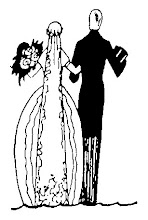Chuck Colson has asked if I would begin a regular column on the church and cinema. And I am happy to do so. Besides being a movie lover himself, Chuck knows that effective engagement with culture by Christians must include the arts as well as politics, the imagination as well as reason, popular culture as well as high culture. Just as we must learn to exegete Scripture, we must also learn to understand and respond to the movies we see. Chuck is right. The typical American sees more than 45 movies a year. Given that a film takes two hours or so to see, we might reasonably conclude that for even the regular church-goer (only 18 to 20% of our population is in church each Sunday), the stories we see on film consume as much of our time as the Stories we hear in church. And this is for those of us who are regular church attendees. A much smaller percentage also read Scripture regularly outside of church, but similarly there are movie devotees who watch two or three movies a week. If Christianity is incarnational – that is, if God’s Story is always understand culturally (for example, Luther realized that he must translate the Bible for Germans into the vernacular) – then we must take our context seriously. This is the God-appointed way for the Christian faith to come alive and have the impact God desires it to have. Popular culture, and specifically One man’s journey Perhaps a personal story might be the best way to introduce myself. As a freshman at When the Archbishop died, however, the King ingeniously appointed his drinking buddy, Thomas, to the post, assuming that in this way any criticism would soon cease. A brilliant move (!), except that Thomas chose to take his new vocation, his calling to be God’s servant, seriously. If he was now Archbishop, he must serve God and not the King. Henry was livid, but to no avail. It was not long until Thomas was martyred in Canterbury Cathedral on the altar steps. Becket is a classic. I recommend it highly. But that is not the reason I recount the story. Rather it is because that night in the Varsity Theater in Palo Alto, California, I heard God speak to me, calling me to Christian ministry. You see, my struggle at that time with accepting the call to become a minister of the Gospel of Jesus Christ was my image of the pastor as needing first to be a holy person. My club leader in Young Life, and my youth counselor at my church were such persons in my eyes. And I knew I was no saint; certainly not someone who wanted to be a martyr! But in the Varsity Theater that night, I heard God saying to me through his Spirit, “You need not be holy. Thomas wasn’t. You only need to be obedient to my call, and I will then make you holy.” I responded and said, “Lord, I want to be loyal to you. Help me be your servant.” Here is the power of the movies. Transcendent experiences Last fall in my theology and film class at Fuller Seminary where I teach, I asked all 50 students to share their own personal experiences of the spiritual power of film, if in fact they had had such an experience. About half wrote that they had had similar transcendent experiences at the movies to what I had recounted. Some of the movies that had proven transformative were older classics – Field of Dreams, Shawshank Redemption, Braveheart, The Elephant Man, Interestingly, few of these movies that had changed students’ lives were explicitly religious. In fact, it was only those who said they had never met God at the movies, never had a transcendent moment at the cinema, who listed “religious” movies as spiritually significant – A Walk to Remember, Lord of the Rings, Man on Fire. These movies, they said, had taught them lessons, had reminded them of Christian truth already known. But they had not been transformative. The major exception was Chariots of Fire, which like Becket was a “secular” movie about a Christian hero. Movies can help us know about God. But they can also, on occasion, help us know God. Hope you’ll join me in our journey each month as we explore the spiritual possibilities of movie-going.
*When I was a Centurion, Chuck Colson's ministry to train men and women for worldview ministry, I had the privilege of meeting Dr. Johnston and to read a couple of his books. Through his influence I started a worldview movie night for women at my church. The first movie we analyzed was The Matrix, pretty fun. Ask Lorraine what that was like! I highly recommend Colson's web site and his resources as a wonderful teaching tool as well as highly informative for you personally. It is choked full. Robert Johnston is just one of many.
PERSPECTIVES:The Power of Movies
Movies and the Church
Dr. Robert K. Johnston is Professor of Theology and Culture at Fuller School of Theology in Pasadena, California. Additionally, he serves on the BreakPoint Centurions faculty and the Executive Committee of the City of Angels Film Festival in Hollywood, CA.
2 years ago


0 comments:
Post a Comment